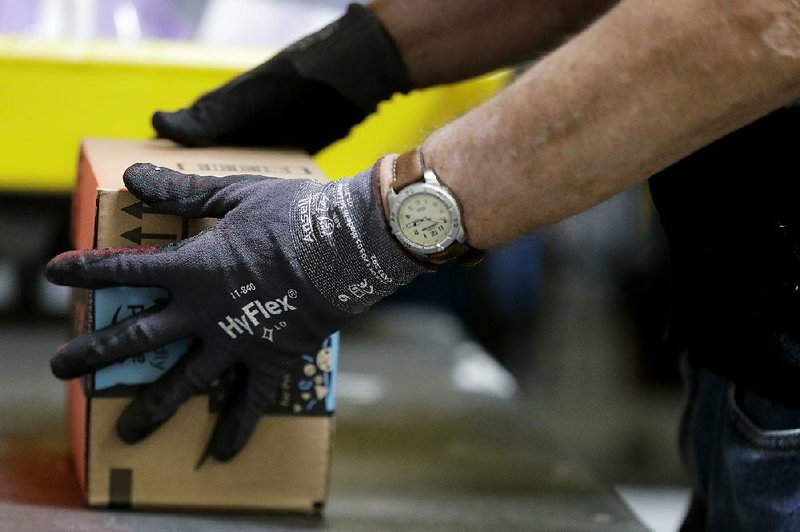Amazon.com is going to start delivering packages not just to doorsteps, but inside homes as well.
The new service, called Amazon Key, incorporates a smart lock fitted to a customer's door, as well as a new Amazon security camera to record the movements of the delivery person, the company said Wednesday. Amazon also will sell its Cloud Cam as a stand-alone piece of hardware, moving the e-commerce giant into the home-security market and setting it up to compete with traditional players including Netgear Inc. as well as newer entrants such as Alphabet's Nest Labs.
Doors will be opened for delivery only if the relevant driver is verified by Amazon's system, and the driver will never be given keys or codes to unlock doors manually. The service, a perk available only to Amazon's premium Prime subscription users, starts at $250. The In-Home Kit includes an Amazon Cloud Cam and one of several smart locks made by Yale and Kwikset.
"Amazon Key gives customers peace of mind knowing their orders have been safely delivered to their homes and are waiting for them when they walk through their doors," Peter Larsen, vice president of delivery technology, said in a statement.
Amazon Key will be available in 37 U.S. cities starting Nov. 8. Amazon also will offer free installation of the kits. The Cloud Cam will be sold as a stand-alone device for $120. Much like Google's Nest Cam, it allows for remote monitoring of homes, two-way communication and Web-based video recording.
The new offering marks the latest attempt by Seattle-based Amazon to embed itself in people's daily lives and make products easily attainable. Hardware isn't the core of Amazon's business, but it's an important conduit to a universe of services it provides. The Alexa voice digital assistant on the company's Echo speakers offers the ability to quickly order products, while Kindles, tablets and TV devices push Amazon's content from music and movies.
Amazon Key also opens the door to future integration with in-home service providers, such as cleaners and pet sitters, in the coming months. The company intends to allow homeowners the ability to let third parties enter, conduct their business, and depart with the house securely fastened. Customers can track and talk to the hired hands using Amazon's Cloud Cam while the work is taking place.
Brands already signed on to enter dwellings by Amazon Key include ServiceMaster Global Holdings' Merry Maids and animal caregiver Rover.com.
Authorized friends and family also will be allowed access using Amazon's Key app; the owner retains control over the frequency of entrances and the lengths of their stay.
Amazon has introduced a string of new products recently. In September, the company debuted new Echo speakers, including a small model with a screen and videoconferencing for nightstands. It also announced the Echo Show, a speaker with a tablet-size screen, and the Echo Look, a camera that gives fashion suggestions.
The home-security market is growing rapidly. The online researcher Statista estimates that smart-home camera shipments will almost quintuple to 25.1 million by 2019. The research firm estimates the broader market for all smart-home devices will be worth $40.9 billion worldwide by 2020.
Wal-Mart is testing a similar system for delivery of groceries into homes. A pilot program began in Silicon Valley in September and involves partnerships with delivery service Deliv and August Home, a technology company that produces smart-home devices such as locks and security cameras. Packages will be dropped off in the house, while grocery items that need to be refrigerated or frozen will be put away.
Information for this article was contributed by Mark Gurman of Bloomberg News.
Business on 10/26/2017

